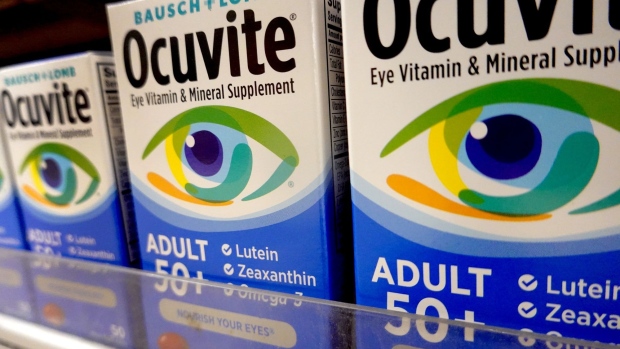Dec 12, 2022
Bausch Health Investors Seek to Block Eye-Care Business Spinoff
, Bloomberg News

(Bloomberg) -- Bausch Health Cos. investors lost a legal fight to block the planned spinoff of the health-care firm’s valuable eye-care business, which they alleged was an improper shifting of assets to protect the company from securities lawsuits.
Superior Court Judge Margaret Goodzeit in Somerset County, New Jersey, concluded Tuesday it wouldn’t be proper to her to intervene because the spinoff wasn’t imminent. No date for the move has been set. Still, the judge said the company must give investors 14 days notice if it decides to not ask shareholders to vote on the transaction.
More than 50 funds that own Bausch shares claim executives engineered the spinoff of its cash-rich Bausch + Lomb unit to put it out of reach of lawsuits seeking to hold them liable for misrepresentations about the company’s financial health, according to filings in state court in New Jersey.
Read More: Bausch Health Gets Boost in Spinoff Lawsuit, But Risk Persists
Kevin Wiggins, a Bausch spokesman, didn’t immediately comment Tuesday on Goodzeit’s ruling. In its court filings, the company’s lawyers maintained there was no need to block a transaction that hadn’t yet taken place.
Larry Rolnick, a lawyer for some investors suing over securities violations, said in an emailed statement that the judge’s order for the company to provide advance notice provides investors “a meaningful opportunity to obtain an injunction.”
Bausch has been hit with some headwinds over the last few years, facing litigation over its business practices and undergoing a major rebrand. The company changed its name from Valeant Pharmaceuticals in 2018. Valeant became infamous on Wall Street for raising prices of some of its drug by as much as 500%, a practice that drew scrutiny of its business tactics. The company also was accused of misleading investors about revenue growth as part of a scheme involving Philidor Rx Services, a mail-order pharmacy Valeant established.
Bausch agreed in 2019 to pay more than $1.2 billion to settle some federal-court claims by investors who alleged Valeant executives artificially inflated the company’s stock price by misleading shareholders about its price-gouging, kickbacks and other business practices tied to its relationship with Philidor.
Lawyers for some of the hedge funds suing Bausch over the remaining Valeant claims argued the spinoff of the eye-care unit amounts to a “fraudulent transfer” of assets under New Jersey law and should be blocked. In September, the company said it did a $3.1 billion debt swap in preparation for the eye-care unit’s separation.
The case is GMO Trust v. Bausch Health Care Companies Inc., No SOM-C-12010-22, New Jersey Superior Court (Somerville)
--With assistance from Holly Froum.
(Updates with comment by investors’ lawyer in fifth paragraph)
©2022 Bloomberg L.P.


